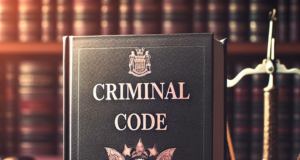
The use of the death penalty is often the subject of intense debate. Numerous convicted criminals throughout the United States have been sentenced to execution for the crimes that they committed. Many individuals support the use of capital punishment without fully understanding the problems that are associated with this criminal sentence.
The public often maintains the belief that employing the death penalty is the only way to effectively neutralize the threat that is posed by dangerous criminals.
Generally, individuals are not familiar with many of the complications that capital punishment presents. Though the sentence of capital punishment may be warranted in some instances, it is important for society to understand all aspects of the death penalty before they support or oppose its use.
Background
Capital punishment is not a recent institution. Since the beginning of human civilization, individuals who were responsible for breaking government, societal, moral, and religious laws have received the death penalty for their actions. These individuals have been killed due to the behavior that they took part in.
The death penalty is still used today in countries and by cultures throughout the world. Some countries continue to use inhumane methods of execution and will murder people for taking part in minor offenses. In underdeveloped countries, these executions often occur without any formal judicial process in which the offender can defend themselves against these accusations.
In the United States, the death penalty is only exacted after a thorough judicial process. The accused must be given the chance to defend themselves and there must be evidence that indicates that the perpetrator is responsible for vicious crimes and that they have no regard for the sanctity of human life.
Crimes that Possibly Warrant It
There is a great deal of debate regarding what crimes should be punished by the death penalty. Capital punishment is an extremely serious and irreversible sentence. The use of capital punishment has decreased a great deal in recent years in favor of a sentence of life in prison. Many individuals feel that the death penalty should not be used at all. In most cases, capital punishment is exacted when an offender is responsible for the murder of another person.
Some individuals argue that there are various different crimes that warrant the use of the death penalty even if murder does not occur. These crimes are vicious and heinous in nature and often lead to severe and extensive physical injuries to the individuals who are the victims of these crimes.
However, the Supreme Court has ruled that the use of the death penalty for crimes other than murder violates the decree that prohibits the used of cruel or unusual punishment. Therefore, the punishment for a crime must be proportional to the severity of the criminal activity that occurred. Because of this, the death penalty has not been used to punish crimes other than murder since it was reestablished.
Political/Social Debate
Capital punishment has been the cause of a great deal of debate since the American colonies were formed in the 1600s, and long before that in other areas of the world. Individuals have found both beneficial and detrimental aspects of capital punishment which may be used to support the death penalty or to condemn it.
Individuals who argue for the use of capital punishment explain that it is the only completely effective way of keeping society safe from dangerous criminals. It is also used to deter individuals from committing similar crimes. However, the effectiveness of the death penalty in these matters is often called into question by individuals who oppose the death penalty.
They cite many complications that are associated with capital punishment and they believe that the detrimental and potentially horrific consequences of the death penalty outweigh the benefits that capital punishment may posses. Humans are capable of error and human judgment is not always correct.
Therefore, it is possible for awful and irreversible mistakes to be made. The only sure way to avoid these mistakes is to abolish the death penalty in the United States.
Wrongful Convictions and Capital Punishment
Capital offenses are extremely serious crimes that deserve extremely severe punishments. In cases of capital offenses, the
State is often under a great deal of pressure to find, convict, and sentence the individual who is responsible for committing the crime in question.
The public and the jury are often eager to see the individual who is responsible for heinous crimes receive penalties for their activities and behavior. In many instances, the legal process is compromised or important evidence and information is omitted from the case. In instances such as this, it is possible for an individual who is innocent of a crime to be wrongly convicted of a capital offense.
It happens much more frequently than most people believe, and it is one of the primary reasons that advocates argue against the death penalty.
Since DNA technology has provided criminal investigators with new and viable evidence, many individuals who were awaiting execution on death row have been released from prison because the evidence proved that they were not guilty of the crime in question. It is extremely disturbing to know that if this technology was not available, innocent individuals would be executed for a crime that they did not commit.
Statistics
Statistics related to capital punishment create an alarming picture and raise many questions about the fairness of the death penalty and the sentence of capital punishment. Individuals who support the death penalty argue that capital punishment is the only successful method of ensuring that society is safe from dangerous criminals.
They often claim that capital punishment is a fair and fitting penalty reserved only for the most heinous offenders in instances in which there is no other alternative. However, reviewing information and data related to the use of the death penalty individuals may quickly conclude that the death penalty is not fair at all and is, in fact, arbitrary and erratic.
There are no strict guidelines that determine what capital offenders will be sentenced to life in prison and which ones will be sentenced to death. While the majority of individuals receive a life sentence for capital offenses, a few individuals who have committed similar crimes will be sentenced to the death penalty. Statistics indicate that capital punishment discriminates based on race, ethnicity, socioeconomic status, and geographical location. Until these problems and issues are addressed and resolved, capital punishment cannot be considered to be a fair or ethical system.
Cost of Death Penalty
One of the common concerns regarding the use of the death penalty is the financial burden that it imposes upon the Government and taxpayers. It is a logical assumption that sentencing a criminal to spend the rest of their lives in prison would result in more expensive fees. A life sentence requires the State to provide the offender with food, clothing, and shelter for the rest of their life. The states must also employ individuals for the operation and maintenance of correctional faculties.
Once a convict is executed they no longer require necessities that result in Government spending. Although it is a logical determination that the cost of life imprisonment is more than capital punishment, this assumption is incorrect. In order to maintain the death penalty, State governments must spend hundreds of thousands of dollars every year. The cost that is accumulated due to the death penalty is far greater then the cost accumulated due to life sentences.
Creation of Death Penalty
The death penalty is not a new or modern development. Capital punishment has been practiced throughout the world for hundreds of years by various different countries and cultures. Since its advent, the death penalty has undergone major and significant changes in order to become the form of capital punishment that we utilize today.
Capital punishment was used in the American colonies since they were established in the 1600s. The practice of the death penalty was largely based on capital punishment in Europe. American colonists utilized the death penalty in order to punish criminals and to deter other individuals from taking part in criminal behavior.
Often, the behavior that was punishable by death are crimes that would be considered minor crimes by today's standards. For example, in the American colonies an individual who was caught stealing food may have been executed as punishment for their behavior. Since the 1600s, capital punishment has changed and adapted a great deal to fit the times.
Religious Arguments
The use of the death penalty has been the source of a great deal of controversy between individuals, political parties, and organizations. It has been especially controversial within religious denominations. Capital punishment has caused numerous debates amongst religious factions and between individuals within religious denominations. Each religion has different teachings and beliefs regarding the death penalty. Some religions have chosen to take an official stand on the death penalty, while others choose to remain obscure about their views on capital punishment.
Despite the official stance that has been adopted by religions, capital punishment continues to cause disagreements within religious factions. Some individuals will use incidents that occur in religious scripture to justify and support the use of the death penalty. Other people will argue that capital punishment conflicts with all of the basic and fundamental teachings and beliefs of their faith. Both sides of the argument raise interesting points. However, it is unlikely that this debate will be resolved in the near future.
States Disallowing Death Penalty
A great deal of argument and debate surrounds the use of the death penalty. Individuals who support capital punishment often cite many beneficial aspects of the death penalty. It is very effective in keeping individuals who are believed to be dangerous off of the street, preventing them from causing future harm to society and to innocent individuals. However, there are many problems with the use of capital punishment.
The death penalty is an irreversible sentence. Therefore, if evidence comes to light after the execution has been carried out the court cannot make amends for the mistake that they have made. Many states recognize the many various complications that are associated with capital punishment. Although the death penalty is still in practice the in majority of states throughout the United States, some states have chosen to abolish the death penalty. As early as 1846, states began to forbid the use of capital punishment on capital offenders. Other states have followed this example, and today thirteen states have chosen to abolish the death penalty.
Court Process for Death Penalty
The court process that leads to capital punishment is extremely long and detailed. From the time that an offender carries out their crime to the time that they are executed may take many years. It is possible for an innocent person to be sentenced to the death penalty.
Since DNA technology has been developed, many individuals have been released from death row because new evidence indicated that they were innocent of the crimes with which they were charged. In order to help ensure that a victim is not wrongly accused and executed for a crime that they did not commit, there are various procedures that are carried out during a capital case.
A capital case occurs in two different phases. First the evidence is presented to the court and the defendant is either found guilt or not guilty of the crime in question. Then the sentencing phase will occur. This phase will determine the fate of the convict. If an individual is sentenced to death, then a lengthy process of appeals begins. This process helps to guarantee that no legal errors were made throughout the course of the trial. These processes, and the procedures that follow, make capital cases not only extremely long, but also very expensive.
Juvenile Death Penalty
A great deal of controversy surrounds the sentence of capital punishment for individuals who have committed a capital offense as a juvenile. There have been many valid arguments made by both those supporting and opposing the use of the death sentence for juvenile offenders. Recently, the Supreme Court ruled against the use of the death penalty in cases in which the capital offense was committed when the convict was a juvenile. The Supreme Court considered capital punishment for juvenile offenders to be unconstitutional and a violation of the rights laid out by the United States Constitution.
Before the Supreme Court passed this judgment, some states took it upon themselves to outlaw the use of capital punishment on juvenile offenders. Individuals who opposed the use of the death penalty on individuals who were convicted of a crime that was committed when they were a minor argue that individuals who are under the age of eighteen do not posses the cognitive ability to understand their actions and the consequences of their actions.
Therefore, imposing capital punishment upon these individuals is unconstitutional. The use of the death penalty on juvenile offenders continues to be a controversial international issue.
International Death Penalty Issues
Capital punishment does not only present issues within the United States, but it also raises concerns on an intern




















